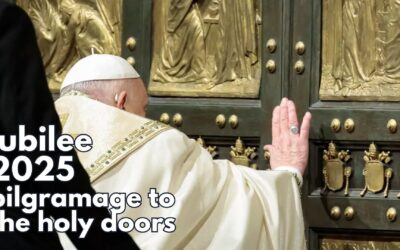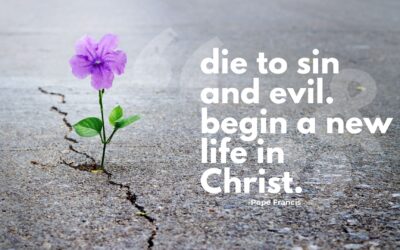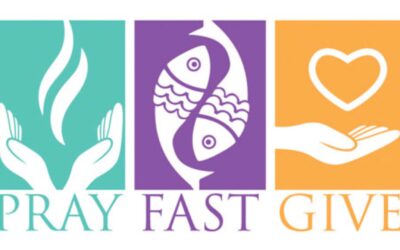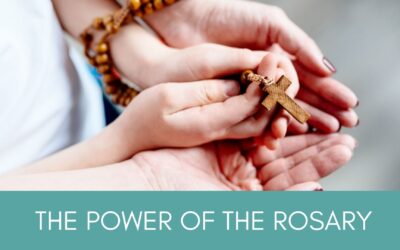A Message from Father Nathan
My dearest people closest to my heart!
God bless you and your generous heart
St. Benedict
Father of monasticism. Patron Saint of Europe. Protector.
St. Benedict is the patron saint of a wide variety of people and needs, including: against poison, agricultural workers, civil engineers, the dying, those afflicted with fever, those with gallstones, those with inflammatory diseases, those with kidney disease, members of religious orders, monks, schoolchildren, and spelunkers (cave explorers).
I do love and would die for St. John Paul II; he is one of my favorite popes. No pope heads the Church without reason, but there are a few who make a great impression in our lives, one among them would be Benedict XVI. To me, he is the model of humility that we have witnessed in our times.
His real name was Joseph Alois Ratzinger, but he chose St. Benedict as His patron and papal name, hence that pushed me to search for the greatness of St. Benedict, whose feast we celebrate this week.
Who was St. Benedict?
St. Benedict was born (ca 480 AD) into Roman nobility in Nursia, central Italy, roughly 100 miles northeast of Rome. His father was a perfect (chief magistrate) for the Western Roman Empire, which had fallen to the barbarians a decade prior to his birth. He had a twin sister Scholastica, who also became a saint.
As a youth, Benedict was sent to Rome for studies. However, he quickly became disillusioned by the prevalent immorality and disorder, particularly among his classmates. At the age of twenty, to find peace in his soul and avoid the traps that had ensnared many of his peers, he moved to the countryside of the town of Affile, about forty miles from Rome.
Accompanying him was his nurse who cared for him like a mother. They moved in with some virtuous men in the Church of Saint Peter. While there, his nurse accidentally broke a dish used to sift wheat and was distraught. Witnessing this, Benedict miraculously mended the dish and returned it to her. News of this miracle spread quickly, and Benedict became the talk of the town.
Benedict wasn’t interested in the praise of men; he sought only holiness. Leaving his nurse behind, he moved closer to the town of Subiaco and took up residence in a cave. Nearby, he met a holy monk, Romanus, who Benedct consulted for spiritual advice. At Romanus’ encouragement, Benedict took on the monastic habit and lived in the cave for the next three years as a hermit.
Romanus visited him frequently, bringing him food as needed. As a hermit, Benedict prayerfully sought to root out all sin in his life, especially three temptations common to most men:
“the temptation of self-affirmation and the desire to put oneself at the center, the temptation of sensuality and lastly the temptation of anger and revenge”
(Pope Benedict XVI, General Audience, April 9, 2008)
After having conquered these temptations, Benedict was invited by a group of local monks to become their abbot. He reluctantly agreed, recognizing that his form of religious life contrasted sharply with theirs. After a brief time as abbot, the monks so opposed him that, according to legend, they attempted to kill him by poisoning his wine. When Benedict blessed the wine, the glass shattered, and the scheme was revealed.
Shortly afterward, Benedict left the monks and returned to his cave before emerging to found monasteries in the area over the following years. Many admired him and were attracted to his radical way of living, while others envied him and sought his life. Numerous miracles are said to have taken place through his intervention, such as raising a monk from the dead, healing a boy, foreseeing future events, multiplying food and wind, expelling demons, and walking across the water.
After founding twelve small monasteries in the Subiaco area, Benedict felt it was time for a fresh start. One of the local priests had tried to poison him and was relentless in his persecutions. He even sent a naked woman to one of Benedict’s monasteries to tempt him and the monks. In addition to this persecution, some monks found his way of life challenging, and the locals were more taken with the stories of his miracles than with his devotion to God.
Therefore, he moved about sixty miles southeast to the mountaintop of Monte Cassino, where at the age of 50, he founded his most famous monastery. He built lots of monasteries and formulated regulations for the same. St. Benedict was not only the father of monasticism but also the father of modern Europe, given the influence that monasteries using his rule have had on Europe and world as a whole. For this reason, Pope Paul VI declared St. Benedict the patron saint of Europe in 1964.
He continues to intercede for the church.
With lots of love and blessings,
Ever wanting to be faithful to your service,
— Fr. Sahayanathan Nathan
Set up Online Giving.
You can make a one-time donation or set up recurring gifts.
Join our Parish Family
Register in the parish, so that it’s easy to become a confirmation sponsor or Godparent.
Want to Lend a Helping Hand?
Find volunteer opportunities and share your talents.
Need a Helping Hand?
We are here to help. Request home visits, send a prayer request. For urgent needs call 954.943.3684
Past Messages from Father Nathan
From The Desk Of Father Nathan | March 16, 2025
Catholic Jubilee 2025. Pope Francis has opened the Holy Doors is Rome. St Gabriel Parishioners will be on pilgrimage to visit the Holy Doors.
From The Desk Of Father Nathan | March 09, 2025
The 40 days of Lent is a time of Prayer, Fasting and Almsgiving. We seek to follow Christ’s will more faithfully. “We recall the waters of baptism in which we were also baptized into Christ’s death, died to sin and evil, and began new life in Christ.” Pope Francis
From The Desk Of Father Nathan | March 02, 2025
The 40 days of Lent begins with, Ash Wednesday on March 5 and concludes sundown on Holy Thursday, April 17. Prayer, Fasting and Almsgiving.
From The Desk Of Father Nathan | February 23, 2025
Welcome our Seasonal visitors, Attend Mass Daily, Pray The Rosary, Stay after Communion, Prayerfully consider your gift to ABCD
From The Desk Of Father Nathan | February 16, 2025
Welcome our Seasonal visitors, Attend Mass Daily, Pray The Rosary, Stay after Communion, Prayerfully consider your gift to ABCD
From The Desk Of Father Nathan | February 09, 2025
I would also recommend and request that every parishioner pray the rosary and take our parish to our Blessed Mother. I appreciate all those who come together and pray the rosary. May God bless you all.





